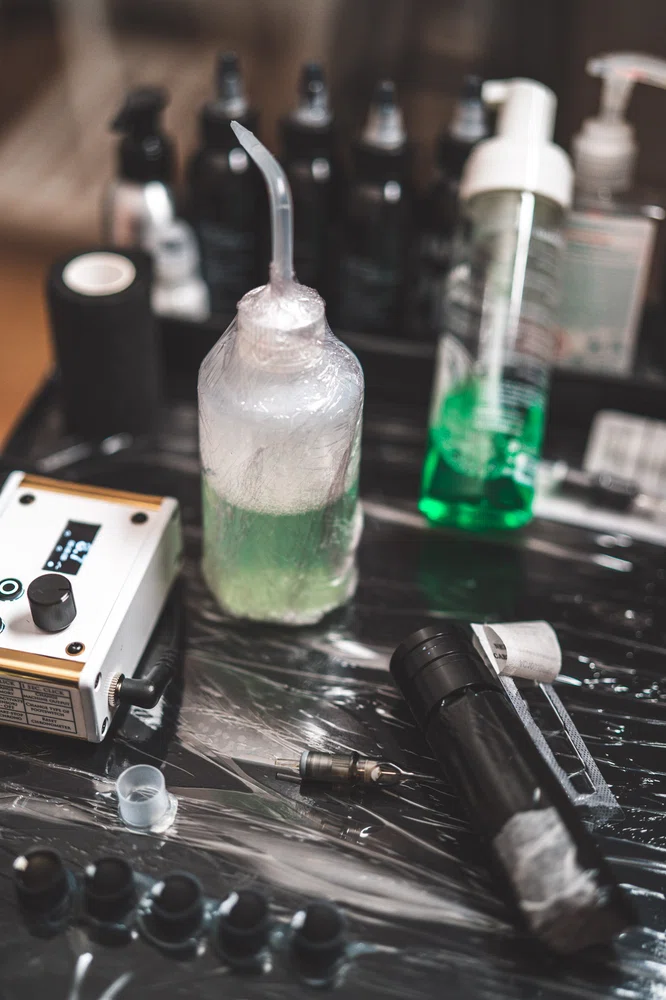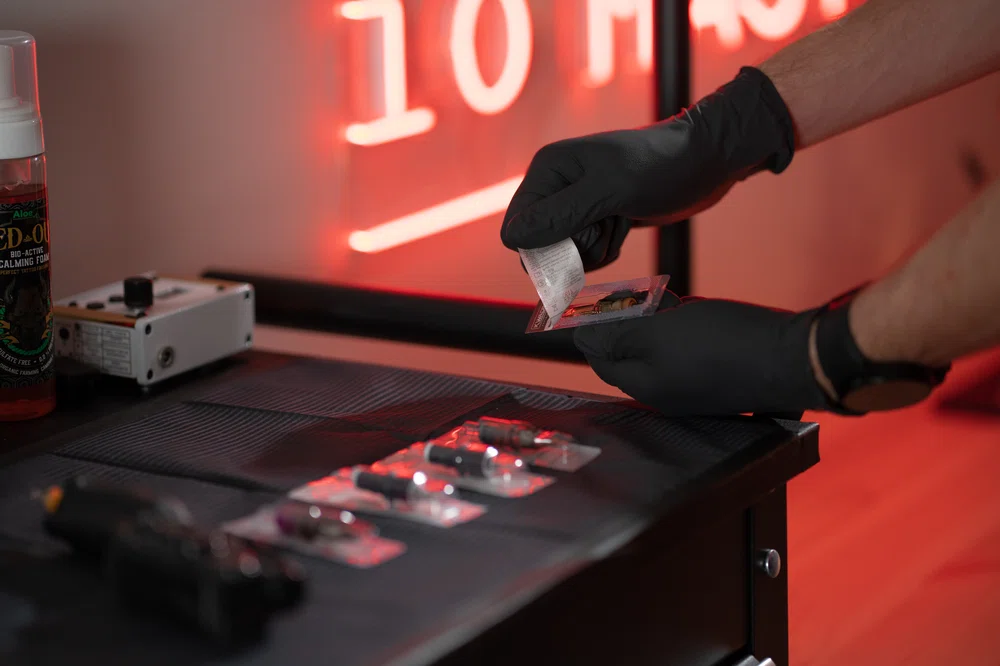Safety and hygiene are essential for tattooing
Every tattoo artist has to respect the following rules
07 May 2024
To set up a tattoo studio you must know some basic rules of asepsis, safety, and hygiene.
Tattooing implies a great responsibility. Prioritizing your clients’ health is essential.
Tattooing can’t be done by anyone, anywhere. Workspaces are sacred, and, as a tattoo artist, you must understand that your business and the quality of your service depend on this.
Cross-contamination
Cross-contamination occurs when bacteria and viruses are transferred from one person to another through different surfaces.
This can transmit diseases and infections and provoke different adverse effects, since viruses and bacteria can live outside the body for up to a week and spread unless the area is immediately disinfected or sterilized.
Sterilizing all the materials, machines and elements used is essential and mandatory. The blood and fluids of the clients can be deposited on the objects, so if they are not spotless, they can reach the body of your next client.
How to avoid it?
You must be cautious and aware of this when tattooing and preparing your workspace. Therefore, you must follow some essential steps.

1- Wash your hands before starting.
Even if you use gloves all the time, remember to wash your hands, sanitize them before, and keep your nails short and not have any cuts or injuries.
2- Use nitrile gloves.
You should have plenty of these disposable gloves, but nitrile, NOT LATEX. They are more comfortable and much more resistant to breakage, and they’re also hypoallergenic.
Make sure you buy your size to have freedom of movement. They shouldn’t be too tight or too loose.
3- Cover all surfaces with cling film.
No matter if it is the stretcher, your worktable, or materials such as disinfectant bottles, Vaseline, spray, ink or any other element that is not disposable but that you need to touch more than once.
This way, you will create a protective barrier preventing bacteria and viruses from being deposited on objects, and you can eliminate them more easily. Remember to wear gloves at all times.

4- Disinfect the machines with isopropyl alcohol and use disposable covers.
Isopropyl-type alcohol is used to clean plastics, acrylics, and materials that can be damaged and dried by regular alcohol. Clean all your machines with this product always before and after tattooing.
Before you start tattooing, you must cover both the machines and the cables with special protectors. You can get these at any tattoo supply store or from specialized suppliers.
Extra data: Some materials are biodegradable and work perfectly for those who want to avoid using too many single-use plastic products. Read the article Vegan products in tattoos, and learn more.
5- When ready to start tattooing, change your gloves and wear new ones.
This is essential because if you don't do it, you will transfer dirt and bacteria from the objects to your client.
Every time you touch another surface that is not covered by cling film or disinfected, you will have to change your gloves.
Always use new gloves, no matter how often you have to do this.
Important
All material in contact with skin, blood, and fluids must be aseptic and single-use.
Occasionally, it's scary how much material needs to be used and disposed in a tattoo, but you need to do it. Incorporate it as part of your work routine.

You must have separate disposables.
That is, you will not throw away needles, disposable gloves or anything contaminated with your clients' fluids in a common rubbish bin.
Separate the waste in specialized bins for high-risk waste like these.
On the other hand, try to use disposable aprons and masks, as they will facilitate the sterilization of all materials and will avoid contaminating your client's wound.
Make sure nobody smokes, eats, or drinks in your study and workspace.
This is often underestimated, but you can't risk contamination in the place where you tattoo. You must guarantee total cleanliness.
However, as we spend so much time in the studio, this may not be 100% guaranteed. For this reason, we recommend that you prepare an area away from the table and the space where you tattoo exclusively for this use.
Safety and hygiene course for tattooing
Before you start tattooing, you must attend a safety and hygiene course and obtain a certification.
This is an essential requirement for all tattoo artists, to be able to tattoo and have their studio.
To learn how to tattoo, you must follow some essential steps that require the utmost care.
Tattooing is not just anything; if you don't take the necessary measures, you can cause an infection and even more significant problems.
When tattooing, you create wounds, and you must be aware of this at all times.
Never skimp on products. Do not be afraid to throw away gloves and many more disposable products. That’s what they are for!
To do the course, visit a health center to find all the necessary information. Authorized tattoo locations can provide you with data on where to go and how to register.
Remember that prevention is always better than cure.
For emergencies or unforeseen situations regarding your client's health, call 112 or a health professional.
If this article has helped you learn what practices are safer when tattooing, that's great for us.
However, if you are interested in refining your technique and discovering new tricks from experienced artists, we invite you to explore our educational offerings in professional tattooing.